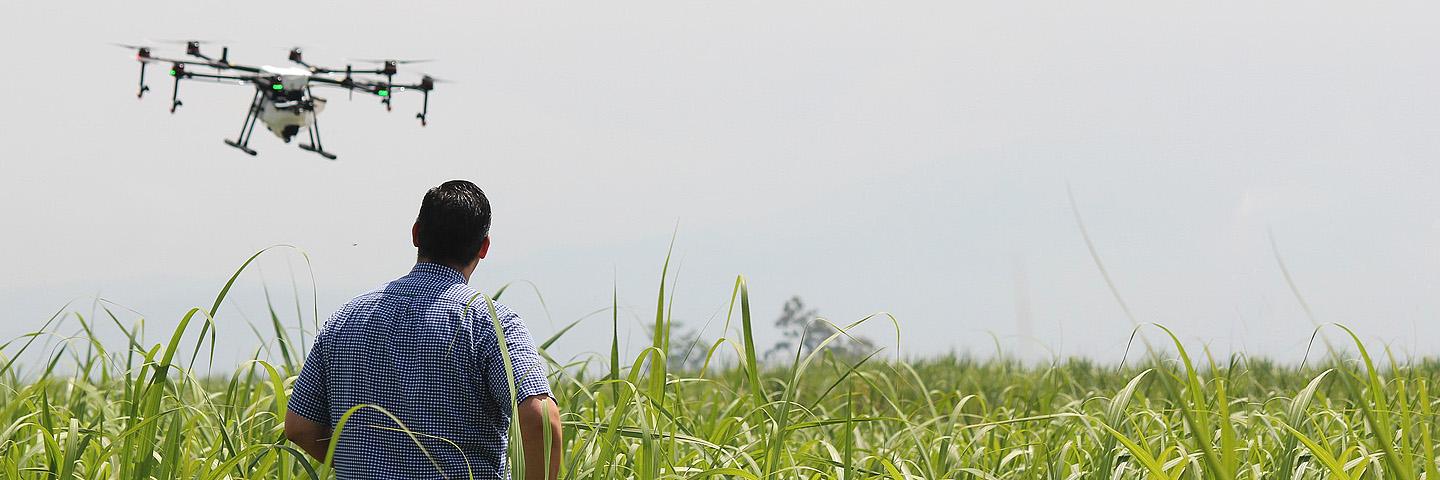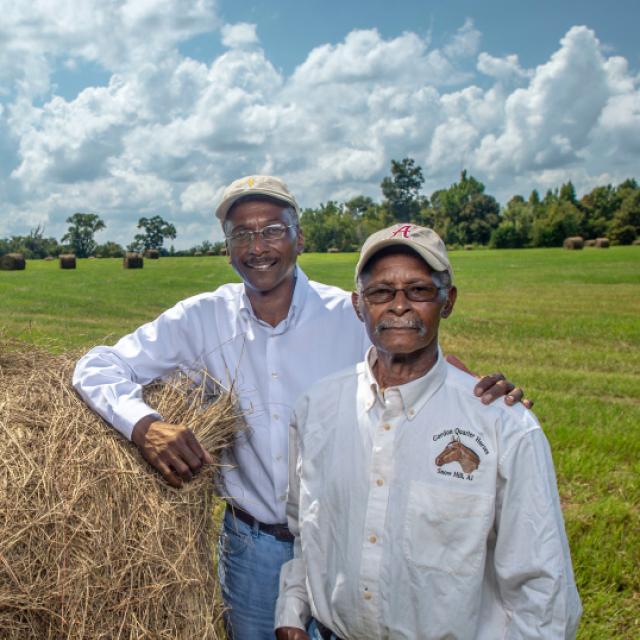Could not retrieve the oEmbed resource.

Through creative problem solving and innovation, Conservation Innovation Grants (CIG) partners work to address our nation's water quality, air quality, soil health and wildlife habitat challenges, all while improving agricultural operations.
NRCS Missouri is announcing the availability of Conservation Innovation Grants (CIG) State Program Funding to Stimulate the Development and Adoption of Innovative Conservation Approaches and Technologies
Missouri NRCS is announcing the availability of Conservation Innovation Grants (CIG) State Program funding to stimulate the development and adoption of innovative conservation approaches and technologies. Applications are accepted from eligible entities for projects carried out in the state of Missouri. A total of up to $500,000.00 is available for the Missouri CIG competition in FY 2024. All non-Foreign, non-federal entities (NFE) and individuals are invited to apply, with the sole exception of federal agencies. Projects may be between one and three years in duration. The maximum award amount for a single award in FY 2024 is $250,000.00. More information and directions on how to apply can be found at: https://grants.gov/search-results-detail/353215
CIG Priorities for FY 2024 include:
• Diversifying Existing Grasslands by Interseeding Native Forbs
With the success of the Native Forage Initiative (NFI), the number of acres of native warm season grasses that are being established throughout the state is increasing. With these newly established stands, there have been several inquiries about establishing native forbs and legumes into both existing and new stands of native warm season grass. NRCS is seeking proposals for best management practices to install and maintain stands of native forbs and legumes into native warm season grass stands for grazing. Proposals should include, but not be limited to, different planting species and rates, planting methods, weed control techniques, grazing management techniques, and stand persistence under grazing pressure over the course of the study.
• Precision Nutrient Management Technology Utilization in Farming Systems
NRCS recognizes that advanced technologies for the application and management of nutrients, including nitrogen, is a rapidly changing field. There is a need to evaluate the use and benefit of these technologies in farming systems and determine any obstacles that would prevent the adoption of new emerging technologies. The utilization of precision variable rate technologies by producers has been on the decline. With advancement in application technologies and the need for proper timing, source, method, and rate based on crop need, these obstacles need to be determined and solutions developed to help overcome and improve the amount of adoption of advanced technologies. Proposals may demonstrate and compare available technologies based on the benefits to the Climate Smart Nutrient Management and determine potential ways to improve adoption among producers.
• Methods of Producing Approved Soil Carbon Amendments that Meet Certified Lab Testing
NRCS supports that soil carbon amendments can be produced locally to be utilized for land application when test results provided from a certified lab m
eet standard requirements. Based on the type of soil carbon amendment produced, a specific temperature process is to be utilized to generate the product. The land application of the product would be dependent on soil test values to determine the rate and frequency of application. Proposals may demonstrate and compare soil amendment production systems as well as the application and frequency of application of the product based on specific site information.
• Urban and Small-Scale Agricultural Production
NRCS supports innovative proposals that can assist agricultural producers in urban and small scale settings. The availability and transportation of equipment, lack of healthy soils or contaminated soils, lack of water, access to land and opportunities to increase the production and sale of locally grown foods are examples of obstacles for urban and small-scale agriculture. Urban producers may need assistance with business planning, technical assistance and extension support, environmental testing, and the development of innovative production and operation techniques. Long term soils compaction and contamination, and air quality concerns may also be concerns for urban producers. CIG proposals should identify production techniques, identify average costs, and economies of scale for urban and small-scale producers, where applicable, which result in demonstrated and evaluated methods which may be adopted in the NRCS Field office technical Guide for use by other producers in similar settings.
Key Dates
Applicants must submit their applications via Gra
nts.gov by 11:59 pm Eastern Time on May 25th, 2024. For technical issues with Grants.gov, contact Grants.gov Applicant Support at 1-800-518-4726 or support@grants.gov. Awarding agency staff cannot support applicants regarding Grants.gov accounts.
A webinar for CIG applicants is scheduled for April 8, 2024 at 9 a.m. CT Standard Time. Information on how to participate in the webinar will be posted to the Missouri NRCS CIG website along with a link below. Applicants are encouraged to visit the MO State CIG website to learn more about the CIG program.
Additional Information
Webinars
NRCS has established a webinar series to allow employees, partner conservationists and other interested stakeholders to hear directly from CIG grantees.
Fact Sheet
General information about the CIG program, who is eligible and how to apply.
Support for Historically Underserved Producers
CIG provides special consideration and benefits to Historically Underserved applicants and projects that support Historically Underserved producers.
Congressional Report
The 2021 Congressional report briefly describes the history of CIG and how the program is managed.
Ready to get started?
Contact your local service center to start your application.
How to Get Assistance
Do you farm or ranch and want to make improvements to the land that you own or lease?
Natural Resources Conservation Service offers technical and financial assistance to help farmers, ranchers and forest landowners.

To get started with NRCS, we recommend you stop by your local NRCS field office. We’ll discuss your vision for your land.
NRCS provides landowners with free technical assistance, or advice, for their land. Common technical assistance includes: resource assessment, practice design and resource monitoring. Your conservation planner will help you determine if financial assistance is right for you.
We’ll walk you through the application process. To get started on applying for financial assistance, we’ll work with you:
- To fill out an AD 1026, which ensures a conservation plan is in place before lands with highly erodible soils are farmed. It also ensures that identified wetland areas are protected.
- To meet other eligibility certifications.
Once complete, we’ll work with you on the application, or CPA 1200.
Applications for most programs are accepted on a continuous basis, but they’re considered for funding in different ranking periods. Be sure to ask your local NRCS district conservationist about the deadline for the ranking period to ensure you turn in your application in time.
As part of the application process, we’ll check to see if you are eligible. To do this, you’ll need to bring:
- An official tax ID (Social Security number or an employer ID)
- A property deed or lease agreement to show you have control of the property; and
- A farm number.
If you don’t have a farm number, you can get one from USDA’s Farm Service Agency. Typically, the local FSA office is located in the same building as the local NRCS office. You only need a farm number if you’re interested in financial assistance.
NRCS will take a look at the applications and rank them according to local resource concerns, the amount of conservation benefits the work will provide and the needs of applicants. View Application Ranking Dates by State.
If you’re selected, you can choose whether to sign the contract for the work to be done.
Once you sign the contract, you’ll be provided standards and specifications for completing the practice or practices, and then you will have a specified amount of time to implement. Once the work is implemented and inspected, you’ll be paid the rate of compensation for the work if it meets NRCS standards and specifications.

